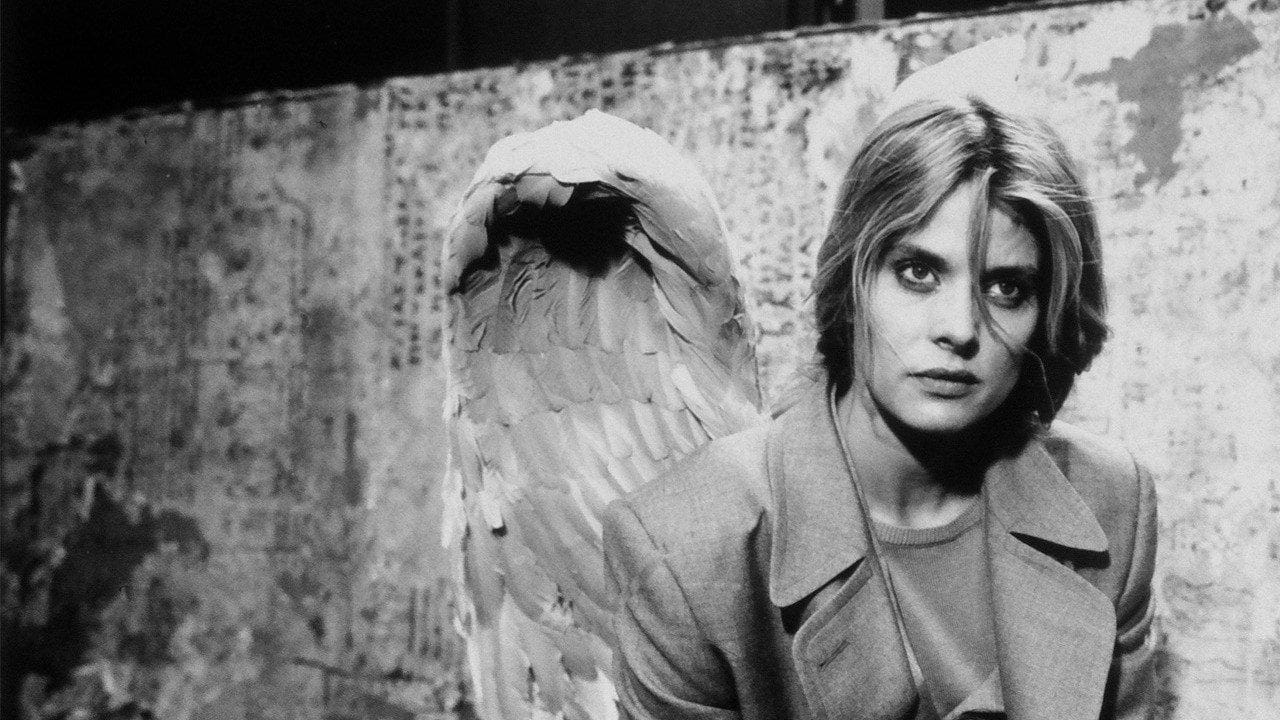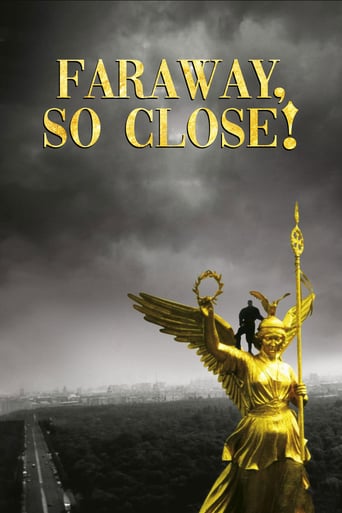



Fantastic!
The plot isn't so bad, but the pace of storytelling is too slow which makes people bored. Certain moments are so obvious and unnecessary for the main plot. I would've fast-forwarded those moments if it was an online streaming. The ending looks like implying a sequel, not sure if this movie will get one
View MoreThe movie turns out to be a little better than the average. Starting from a romantic formula often seen in the cinema, it ends in the most predictable (and somewhat bland) way.
View MoreClose shines in drama with strong language, adult themes.
View Morei don't get it! but it's been 2 week that the characters from the touching films i've been watching recently all have played in a particular movie called Your Friends & Neighbors (1998) which i had visited it's info on IMDb few years ago when i was studying in Gorgan! that time i was wondering if there was any film that had a soundtrack from Metallica! this film had it. the song: welcome home! i got the idea from the movie mission impossible! where the ending music is I Disappear from metallica!Artists: Jason Patric from Sleepers (1996) Nastassja Kinski from wim wender's Faraway, So Close! (1993) Ben Stiller from Meet the Parents (2000)this one was not quite touching but not bad! i like most of the reviews especially the one that is titlled To Film a Poem
View MoreKnowing well that sequels have the potential to mar their predecessors, either through overkill or omission, I stayed away from "Faraway, So Close!" for a long time, letting the DVD linger on the far side of my Netflix queue."Wings of Desire" is a unique creation; every moment of that movie seems abuzz with life, activity, invention, compassion, intense joy and sorrow. It seemed like everyone involved felt the urgent need to tell that story at that particular historical moment.The sequel starts with that same feeling, and for the first 45 minutes or so, I was happy to immerse myself back in that world. However, once the various subplots intervened, and the angelic protagonist began dealing with a standard-issue mafioso in a situation that seems lifted from a wacky 1980s comedy, "Faraway, So Close!" loses its way.Still, I don't regret seeing the sequel. Some moments are wonderful, especially Cassiel's elegiac bedtime-story biography, spoken to an old man who is losing his memory and who knows that Cassiel has been along for the ride. The acting is also terrific, except, oddly, for Willem Dafoe's bizarre, inexplicable character -- the movie grinds to a halt (literally, at one point) whenever he appears.I have to admit that the last twenty minutes made no sense to me. (Spoilers follow.) Wasn't Cassiel's entire mission to stop the mobster from seeing his sister and niece (and if so, why? Bad influence)? And how, exactly, did that acrobatic stunt save the day? The badguys just gave up after that, apparently, for undisclosed reasons -- maybe they felt bad. Also: after a presumed eternity of watching humanity and reading our minds, Cassiel's plot is to use a poorly-concocted stunt? He should've spent some more time watching heist movies.Anyway, all that aside, this movie is still worth seeing; it's just not in the same class as "Wings of Desire." That's not much of a complaint -- very, very few movies are that good.
View MoreCassiel(Otto Sandler)decides to follow Damiel's path and become human, but realizes that this world differs greatly from where he came from. His supposed "nemesis" is a shady character named Emit Flesti(Willem Dafoe playing him very oddly)who can communicate through both worlds..he talks with Cassiel's "angel partner" Raphaela(Nastassja Kinski)and can also chat away with mortals. He seems to have this particular interest in time and time seems to be very prevalent in how Cassiel views this brand new world. The world to Cassiel can be a curious beast..he starts out as any new babe in a brand new world by slowly adjusting to his surroundings. He visits several mortals he viewed as an angel in the other existence taking what little he knew from them incorporating everything into his new man..Karl Engel. As Karl, he has a hard time making headway in the mortal world, at one point deep in an alcoholic daze, but meets a corrupt businessman who changes him into a whole different person. Money begins to slowly corrupt Karl who is entering a world of crime with his boss that may ruin his goal set when he even decided to come to our world..to try and bring humanity to a cold and sad world. That seems to be Flesti's desire(as he often tells Raphaela who often begs him to let Karl alone)for Cassiel..that his Karl descend in this mortal world finding out that he doesn't belong here and should return to his angel duties.This film is quite a contrast to "Wings of Desire" for which it's a sequel. While Damiel's entrance to our mortal realm was indeed because of love for his beloved Marion(the lovely Solveig Dommartin)for whom he often shadowed, Cassiel's decision came because he wanted to make a difference..bring joy to a disheartened world. But, corruption, greed, and other vices may put a damper on those plans. The film, through Wenders direction, lovingly meanders with the German and American languages often mixed together as characters speak. There's less of a melancholic tone to this one where "WoD" was centered in a location of West Berlin before the wall came down and many's hopes and dreams seemed nil. Like in the first film, the camera offers a POV shot of how Cassiel flies, and there's the drifting between B&W and Color to show the changing of worlds for which the angels and mortals inhibit.
View MoreIt's difficult to make a sequel as good as the original. If it's done in the same style, it becomes a poor shadow. Here, Wim Wenders has made something different than in "Wings of Desire:" what I consider a comedy of a misfit ex-angel, to counter the desire of an angel to become human in the other film.Near the end of the other movie, we saw one of the angels, Damiel, become human for the love of a beautiful trapeze artist. In this film, we see the other angel, Cassiel, become human by accident as he wanted to help people. As much as he wanted to fit in with our world, the more he tried to do good, the worse trouble actually made of things. He often quotes the Lou Reed song he heard: "Why can't I be good, make something of this life?"There is a cameo appearance of a world leader, when Mikhail Gorbachev (filmed the summer after resigning as Soviet president) ponders the age-old question about the meaning and purpose of life; or two leaders if counting that the guard dog's name is Khadafy. There are jokes about getting lost between East and West, since the Wall no longer was there as a landmark. But there is the serious side at the beginning, of the war and the Nazi past, which is a little hard to follow. I almost forgot about it as I got caught up in the humor of the fallen angel, but even that had the darker side of an evil angel who was leading him astray. Yet the ending tied everything together nicely.Like "Wings of Desire," there are nice transitions between black and white, which is how the angels see the world, and color, for how humans see things. There is also a poem started at the beginning, about humans being everything to the angels, when Cassiel looks down from the statue to "you whom we love." The angels are just the "messengers who bring light to those in darkness." The poem is repeated at the ending, adding that the message is love.The angels lament that humans can only believe what they can see and touch. The Wall fell, the tangible symbol of the division between East and West, yet still one driver whose thoughts we heard couldn't see what the difference was between the two areas; freedom can't be seen or touched. Love, the angels message, can be neither seen nor touched, yet that, and not "blood and steel" (as said the Russian poet and diplomat that Gorbachev quotes), is what is needed for there to be peace.
View More